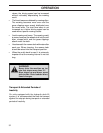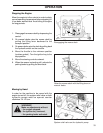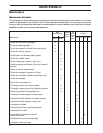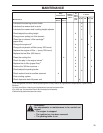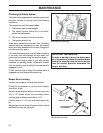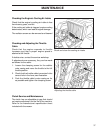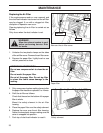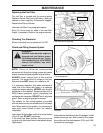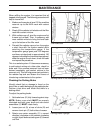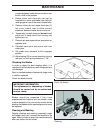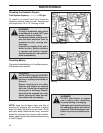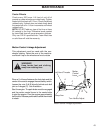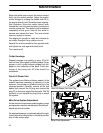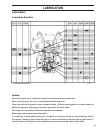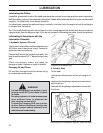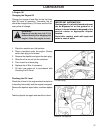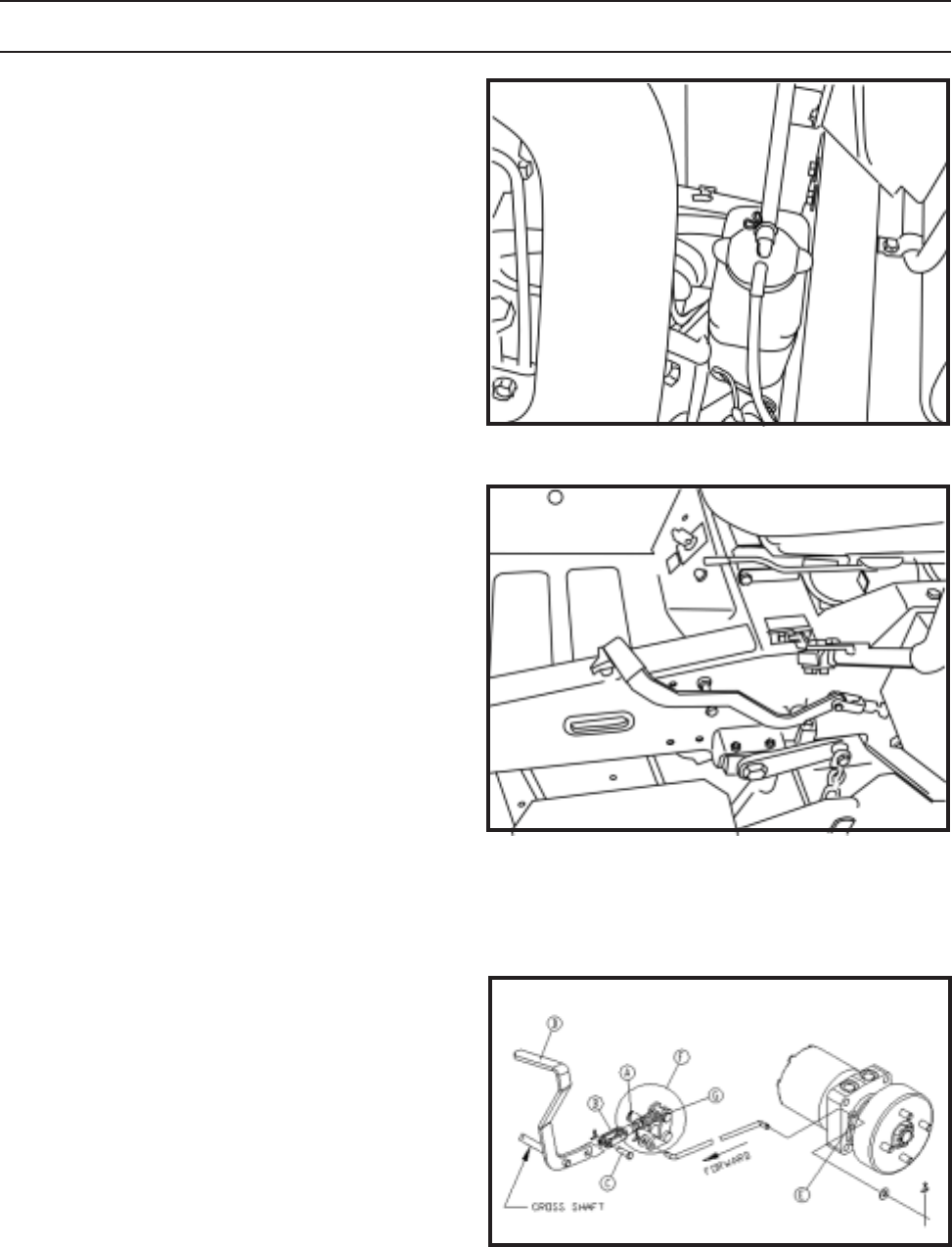
40
When refilling the system, it is important that all
trapped air be purged. The following procedure will
help to insure this:
1. Make sure the engine is level. Fill the overflow
reservoir up to the MAX mark with coolant
mixture.
2. Slowly fill the radiator to the bottom of the filler
neck with coolant mixture.
3. With radiator cap off, start the engine and let
it warm up (no-load). Then, if necessary, add
more coolant mixture to bring the level back
up to the bottom of the filler neck.
4. Reinstall the radiator cap and run the engine
a short time with the system sealed while
watching the temperature gauge. If the
temperature gauge goes past 230 degrees
and does not drop back to approximately 190
degrees, indicating the thermostat has opened,
allow the engine to cool down, check for leaks
and repeat the procedure.
This is a sealed system. If it becomes necessary
to add coolant mixture at a later date, check for
leaks and if the overflow reservoir has not been
drained completely, add coolant mixture to the
reservoir only. This will help prevent air pockets in
the radiator top tank and lessen the chance of
introducing contaminates to the system.
Checking the Parking Brake
Visually check that no damage is found on the
lever, links, or switch belonging to the parking brake.
Perform a test drive and check that there is a
braking effect.
To adjust the parking brake:
1. Set brake lever (D) fully forward against stop.
NOTE: Brake cross shaft MUST be properly
lubricated and both cross shaft and over-center
assemblies (F) MUST rotate freely.
2. Loosen jam nut (A) at rear of clevis (B) and
remove clevis pin (C) both sides of mower.
3. Rotate over-center assembly (F) in correct
direction (clockwise on left counter-clockwise
on right) to pull brake actuating arm (E) forward
until firm
MAINTENANCE
BAM-20
Overflow bottle
BAM-4
Parking brake in the disengaged position
Parking brake lingkage



